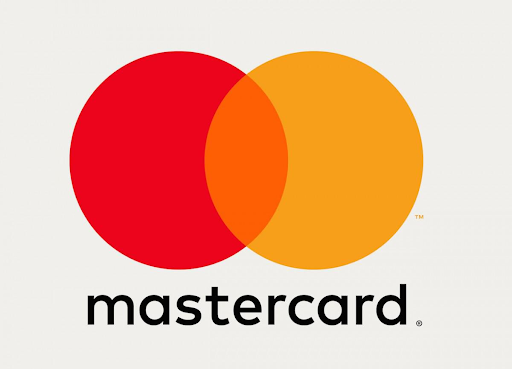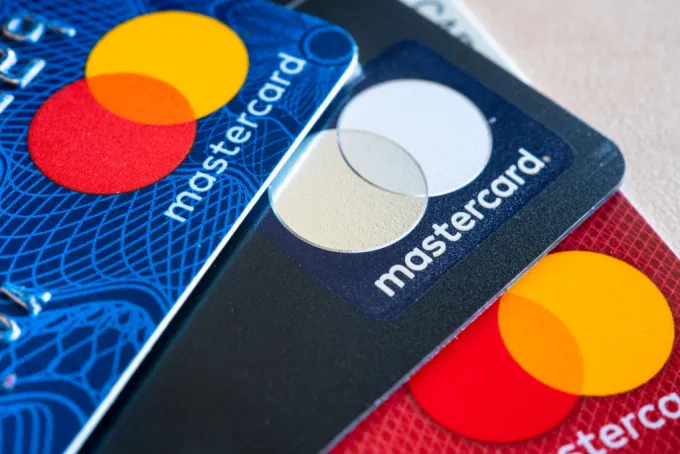Open yourself to endless, PRICELESS possibilities… Just like what this company is doing! [Monday Marketing Marvels]

An electronic payment system has its advantages and disadvantages.
Some of its advantages include increased purchasing speed and convenience, increased sales for merchants, reduced transaction costs, and improved security and risk management.
While it is true that electronic payments make it easier for consumers to transact with different businesses, this system still poses a few disadvantages such as higher risk of identity theft, overspending, and disputed transactions.
A good thing is that this system is continually evolving and improving. In fact, several organizations are focusing on this change and coming up with innovations to make electronic payments more secure and convenient for every consumer.
Just like this company…

Mastercard Incorporated is a technology company that connects consumers, financial institutions, merchants, governments, and businesses worldwide through electronic forms of payments instead of cash and checks.
The company does not issue cards, but it develops advanced payment solutions to make payments more convenient, secure, and efficient for everyone.
Since its founding in 1966, Mastercard has expanded its reach to over 210 countries all over the world. It is continually improving its products and services to cater to the needs of every consumer.
“A World With Better Ways to Pay”
According to Mastercard’s Corporate Story, about 85% of transactions worldwide are still made through cash or checks.
As one of the leading companies in its field, Mastercard envisions a “World Beyond Cash,” carrying a mission to use its technologies and expertise to make payments “safe, simple, and smart.”

In a “World Beyond Cash” setup, commerce is conducted electronically instead of just paper-based payments. Aside from making payments safer for consumers everywhere, it will also enable people, businesses, and communities to be more connected and inclusive.
In order to prove that it is serious about making electronic payment methods more secure, Mastercard offers integrated products and services with a multi-layered safety and security strategy:
- The “Prevent” layer to protect Mastercard users from fraud and cyber attacks.
- The “Identify” layer to help verify the authenticity of a Mastercard user.
- The “Detect” layer to spot suspicious behavior and take action to stop such activity once it has been detected.
- The “Experience” layer to improve the security experience of Mastercard’s stakeholders.
The company is also coordinating with its financial institution partners to increase consumer confidence through the benefit of “zero liability,” or no responsibility for counterfeit or card losses in the event of fraud.
Mastercard’s business operations include a combination of organic and inorganic activities. As stated in its 2019 annual report, its growth is influenced by “Personal Consumption Expenditure (PCE) growth, driving cash and check transactions toward electronic forms of payment, and increasing [its] share in the payments space.”
The company’s main business strategy includes:
-
Growing Its Core Business.
Mastercard focuses on growing its consumer and commercial products and solutions by providing effective and efficient payment solutions. This allows the company to cater to the different ways people interact and transact in the growing digital economy.
Mastercard offers customers various products such as Consumer Credit, Consumer Debit, Prepaid, and Commercial. It also provides several Loyalty Rewards like personalized offers and rewards, access to a global airline lounge network, concierge services, insurance services, etc.
-
Diversifying Through Customers and Geographies.
The company diversifies its business by working with new customers, widening its financial inclusion for the “unbanked and underbanked,” and scaling its business and capabilities into new geographies (including markets with limited electronic payments acceptance).
-
Building New Areas for Improvement.
Mastercard innovates differentiated products to provide unique solutions to its market. Such products include real-time account-based payments and the Mastercard Track service.
Mastercard’s Sponsorship Initiatives
Aside from advertising, digital, mobile, and social media initiatives, Mastercard conducts sponsorship initiatives to promote its brands. It sponsors a variety of sporting, entertainment, and charity-related marketing events and organizations in order to align with consumer segments that are important to the company.
Here are some of the organizations that receive sponsorships from Mastercard:
- Sports – UEFA Champions League, PGA Tour, Major League Baseball, The Australian Open, The Mastercard Memorial Cup, and the Rugby World Cup Japan 2019
- Entertainment – The BRIT Awards, The GRAMMYS, and Lang Lang and Juanes
- Arts and Culture – Carnegie Hall, New York City Ballet, Dubai Ice Rink, Sydney Opera House, Dubai Opera House, Westwood, and Marina Bay Sands
- Culinary – Eataly, The Franschhoek Cap Classique and Champagne Festival, and Food Network’s New York City Wine and Food Festival
According to Mastercard’s 2019 annual report, due to higher spending on certain sponsorship initiatives, its advertising and marketing expenses grew by 3%, or 5% on a currency-neutral basis.
Despite recording higher expenses in 2019, the company was still able to increase its gross revenue by 14%, or 17% on a currency-neutral basis, due to a rise in transactions, dollar volume of activity on cards carrying its brands, and other payment-related products and services.
In the past five years, Mastercard Incorporated has recorded a revenue of:
- USD 9.7 billion in 2015
- USD 10.8 billion in 2016
- USD 12.5 billion in 2017
- USD 15.0 billion in 2018
- USD 16.9 billion in 2019
Clearly, Mastercard’s strategy and different initiatives to promote its products and services enable it to work towards its vision of a safer and better “World Beyond Cash.”
Mastercard Incorporated’s Earning Power: Valens Research vs. As-reported numbers
Mastercard Incorporated (MA) makes for a great case study that we come back to regularly. One great reason?
The company has proven itself to be a better earning power generator than investors might think.
So, how well has MA been growing its business in the past years?
The research doesn’t lie—nor do the results. Earning power (the blue bars) continues to show results higher on average than what traditional databases show.

The blue bars in the chart above represent MA’s earning power (Uniform Return On Assets). MA has seen robust, generally improving profitability. Its Uniform ROA ranged between 26% to 86% in the past sixteen years, or an average of about 56%. Its Uniform ROA is at 86% in 2019.
The global ROA is just 6%.
The orange bars are the company’s as-reported financial information. If you relied on these numbers, you will see a company with understated profitability. As-reported ROA (return on assets, a measure of earning power) ranges from 8% to 22% in the past sixteen years. Its ROA in 2019 was only at 22%, just a quarter of what Uniform ROA was in 2019.
That’s what you’ll see in Yahoo Finance, Google Finance, and most other databases.
The company’s stock price also performed better than the rest of the stock market over the decade, which we can see in the blue line in the chart below. Its returns have been well above the market.

The numbers show that Mastercard has been doing well and making a profit.
As one of the leading global technology companies, Mastercard sees a connected world where “prosperity is possible and opportunity is open to us all.”
Having a sense of responsibility to innovate with purpose, the company assures that it will use its technology and data properly in order to build networks that empower society.
Motivated by its commitment to deliver value for its customers, Mastercard believes that it will be able to build “Priceless” possibilities for everyone.
About The Dynamic Marketing Communiqué’s
“Monday Marketing Marvels”
Too often, industry experts and the marketing press sing the praises of some company’s marketing strategy.
…Only for the audience to later find out that their product was a flop, or worse, that the company went bankrupt.
The true ROI in marketing can’t be separated from the business as a whole.
What good is a marketing case study if one can’t prove that the company’s efforts actually paid off?
At the end of the day, either the entire business is successful or it isn’t. And the role of marketing is always paramount to that success.
Every Monday, we publish a case study that highlights the world’s greatest marketing strategies.
However, the difference between our case studies and the numerous ones out there, is that we will always make certain that the firm really did generate and demonstrate earning power worthy of study in the first place (compliments of Valens Research’s finance group).
By looking at the true earnings of a company, we can now rely on those successful businesses to get tips and insights on what they did right.
We’ll also study the greatest marketing fails and analyze what they did wrong, or what they needed to improve on. We all make our mistakes, but better we learn from others’ mistakes—and earlier, rather than later.
Hope you found this week’s marketing marvel interesting and helpful.
Stay tuned for next week’s Monday Marketing Marvels!
Cheers,
Kyle Yu
Head of Marketing
Valens Dynamic Marketing Capabilities
Powered by Valens Research
www.valens-research.com





